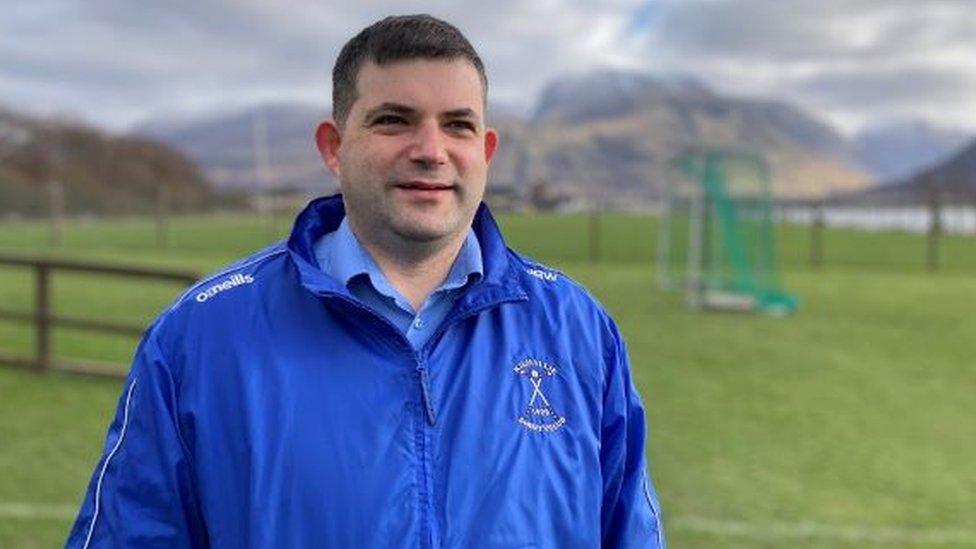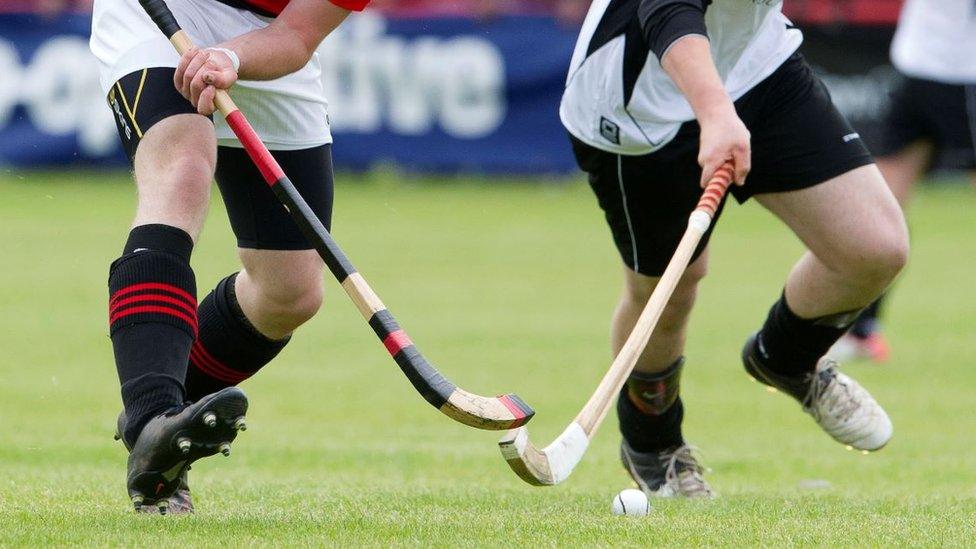Why random drugs tests will be brought into shinty
- Published
Shinty players give their reaction to introduction of random testing
Shinty players will be subject to random drugs test during the new season, which starts this weekend.
Performance-enhancing drugs are not thought to be a problem in the amateur sport, which is played mainly in the Highlands and Argyll.
But the Camanachd Association, the governing body, wants to help address concerns about recreational drug use in the sport's heartlands.
The move has been welcomed by players and supporters of the sport.
John Wallace, a GP and shinty medic, sees shinty as a force for good in the close-knit communities where it has been played for centuries.
But he says: "I think we need to live with the reality that the drugs are there, people will use them and how society and the health system responses to that is the challenge for us.
"I think the [testing] policy is trying to address the real issues we have got in society.
"Shinty provides a positive alternative to drug use."

GP John Wallace describes shinty as a force for good
Random tests were previously a feature of cup finals and shinty-hurling internationals in the 1990s and 2000s.
The new wave of testing will initially be done on a small scale but no decisions have been made about potential punishments for players who test positive.
The Camanachd Association, a member of UK Anti-Doping, said the latest move for competitive games was in response to concerns from some clubs and an extension of shinty's role in supporting local communities.
Steven MacKenzie, its president, said drug use in the shinty heartlands was "no better or worse than across Scotland".
"It's a societal issue," he added. "We are just playing our part in trying to make shinty a healthy alternative."
There is support for the measure among those who play the sport.

Connor Ross and his fellow players at Beauly agree with the introduction of testing.
"Drug use is a big thing in Scotland, and maybe it will get guys to think twice about doing it," he said.
David Maclean said the aim was not to catch people out, but to lead to them getting help.
Ross Forbes added: "I was a wee bit surprised, but when you hear the background why they are doing it, there's a good reason to highlight the issues in local communities and try to address that."
Shinty historian and sports broadcaster Hugh Dan MacLennan said he hoped players would embrace the effort to help make the sport and communities safer.
He said: "My mantra in all of this is if you have nothing to hide you have nothing to fear by the whole process."
Related topics
- Attribution
- Published28 February 2023
